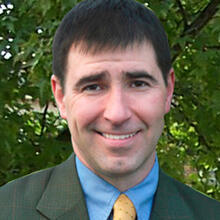Pope Benedict’s statement is every bit as striking as his resignation itself. It deserves attention before talk turns to succession. This is not simply a retirement from the hectic pace of public office. It is an act of magisterial teaching in its own right that resonates with an important, and often-unremarked strand of his pontificate. Benedict emphasizes the humanity of the Papacy and the demands of history. He humbly admits that he no longer possesses the mental and physical strength to lead the Church as it faces “rapid changes” and is “shaken” by deep questions concerning the “life of faith.”
From the beginning of his papacy, in the shadow of John Paul—then called “the Great”—Benedict has struck a lower profile. Of course he lacked his predecessor’s charisma, but his gestures were so often intentional. At his first World Youth Day, he turned from an adoring crowd chanting “Ben-ne-det-to” in silence to face the Eucharist in benediction.
His resignation continues this strand of his papacy—a reduction of the office in a way, subordinating it to tradition. His encyclicals were noteworthy for subordinating his own authorial voice to the broad witnesses of the tradition. He continued to write his own theology, but published his christology with a secular press, scrupulously avoiding assigning magisterial authority to his personal theology.
Benedict broke with the modern papacy since Pius IX, but especially with John Paul II whose sacral understanding of the office was most evident in his final years when the increasingly infirm pontiff occupied the office as a martyr of sorts—a witness to fidelity even in the face of profound physical and mental infirmity. Some applauded this as a witness to the dignity of aging. But so many people witness to this dignity without holding a demanding office that they can no longer properly dispatch. Benedict will continue to serve the Church “through a life dedicated to prayer.” Having ascended the Chair of Peter, he will now step down. The power of that humble act should not go unremarked.
I recall a conversation with a European scholar who criticized Benedict for making the papacy “small.” In some ways, I suspect that was his intent. Benedict is carefully refining the definition of the papacy even as he leaves it.







